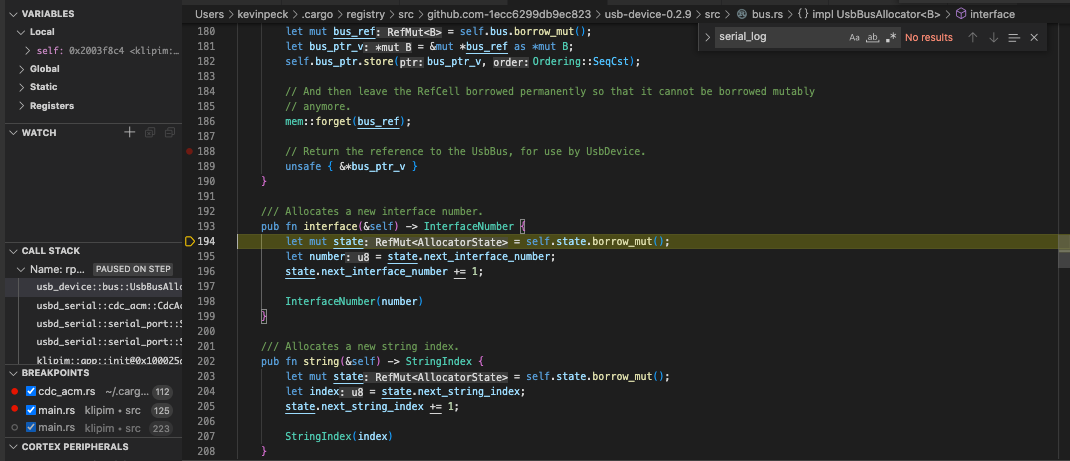It looks like what you're trying to do is expose two serial port interfaces, but you've implemented it as two usb devices. Unfortunately, your microcontroller is only a single device and it cannot act is two devices simultaneously. What you'd want is to expose two interfaces as an interface association as a single device. This is something the usbd_serial crate would have to support for you to use. Otherwise you'll have to do it yourself.
I'm trying to create two serial devices over USB and I get an error at initialization of the second serial device.
The above code crashes at
let serial_log = SerialPort::new(usb_bus);In that call, lower down, here is where it fails.